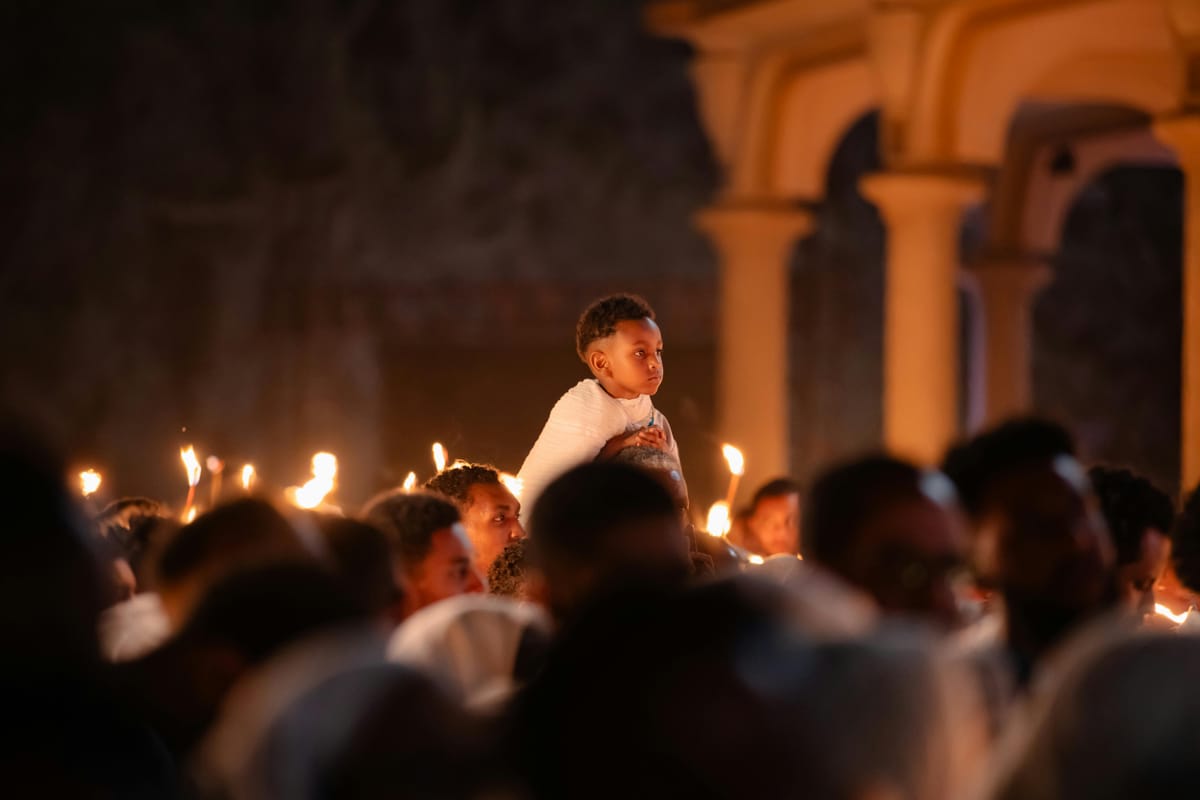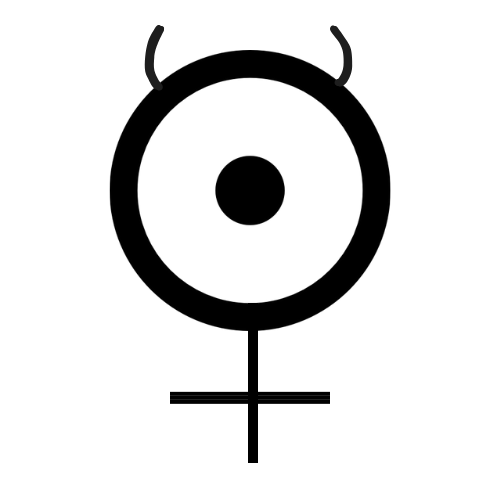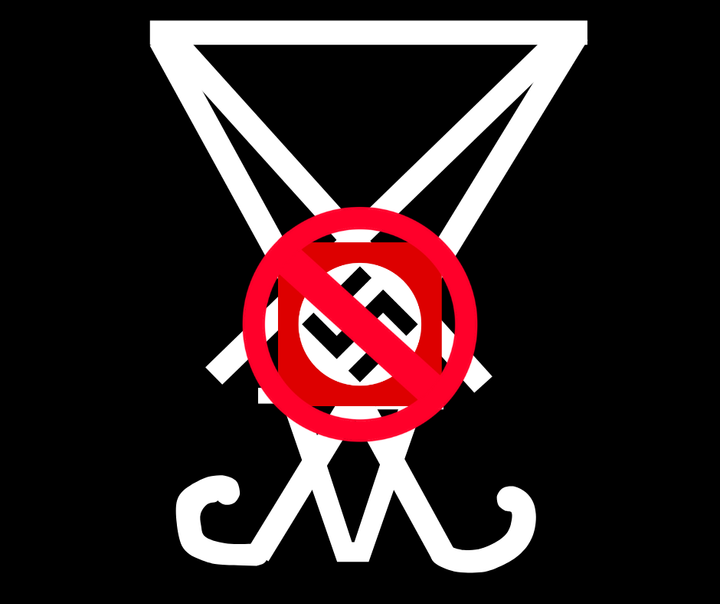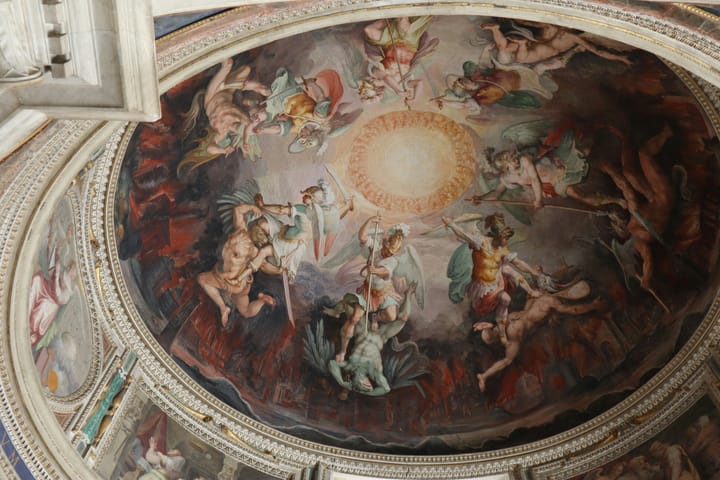Forging a Spiritual Path Outside Religious Trauma

One time in the first witchcraft server I regularly frequented, I got into an argument with someone who joked that "they'd probably turn into a vampire" if they entered the Jewish shul nearby because like many people it never occurred to them that shuls are not the same as churches and Jews are not the same as Christians. Another time, in reply to my description on a dating app profile of my first spiritual experience outside of religious services, some guy messaged me to say, "Isn't it wild what is out there once you're out of organized religion?"
Out of organized religion...?
When I was very small and attended services with my parents, I felt the divinity in the unified voice of our Reform congregation singing and mumbling through the easy rhythm of the Siddur. The temple had a harmonium that my mother paid extra to have included in my Bat Mitzvah service because I couldn't imagine being on the bema without it playing. Unlike several of my peers, I continued to attend educational classes after that ceremony and ultimately got confirmed, which is a Reform-only additional honor probably styled after German Lutheran traditions. In retrospect, my Jewish education was subpar at best thanks to shoddy teachers, but I enjoyed the close relationships I had with the clergy and school principal. As I got older, I pushed for the classes taught by the rabbi to bridge textual understanding with modern political issues, particularly abortion.*
The thing that non-Jews don't understand is that you don't stop being a Jew when you're not practicing the religious elements. But also, I liked the religious elements, or what little Reform Judaism supplied me.
My biggest criticism to this day of my Jewish upbringing is that it did not give me enough religion and that's how I eventually became polytheist. Reform Judaism is the largest Jewish denomination in the United States because it's the one that retains some spirituality while leaving much room for assimilation into American culture. Over 200 years ago when first created, its founders strove toward similarity with Christian neighbors, hence the Confirmation detail among many other structural choices. Openly, it favored "ethics over ritual," emphasizing important values I still hold dear such as tikkun olam (repairing the world). My rabbi's sermons would mix Talmudic tales with modern scientific knowledge and political/cultural commentary.
Growing up Reform showed me how religion could be intellectually relevant. But in sacrificing ritual, particularly at-home ritual outside the holidays, it failed to teach me a spiritual life. Based off the short amount of time I got on my knees in front of my bed and prayed for my loved ones to have good lives in mimicry of the movie Madeline's scene with Miss. Clavel, I craved more. I stopped when my parents told me, "Only Christians do that."
To me, "only Christians" did a lot of things. Mostly weird things, like tell a priest everything they did wrong that week like it was any of their business. Hanging grotesque statues of a tortured man above their altars was also kind of an uncomfortable one for me. And then as I got older and learned that my town was a rare case in the US where Jews were a significant part of the population, I did not like how many Christians thought themselves the center of the world, pushed conversion when Judaism does not, and slandered the "Old Testament" representations of G-d in one breath right before rolling Jews into their "Judeo-Christian values" crusades with the next. So for over 10 years, I didn't pray and I wrote off almost all ritual except for occasional nervous excursions with crystals because I didn't want to be like Christians.
Obviously, I eventually moved past this initial binary thinking and carved out a solitary spiritual path that is neither traditionally Jewish nor has any similarities with Christianity. The curiosity and encouragement toward learning and critical thinking from my early religious days certainly helped me shape my spirituality today. But without that experience, so many other polytheists and witches seem stuck.
I mean the numerous pagan groups my friends have complained mainly consist of people ranting about Christianity rather than focusing on building group rituals. I mean the factually incorrect posts on social media every year about Easter and St. Patrick's Day having pagan roots, which the posters will then furiously defend even if proven wrong. I mean in mass produced and distributed books like When God Had a Wife by Lynn Pickett and Clive Prince, which purports to be a well researched text about the early Hebrew goddess Asherah, but spouts antiJewish thought alongside pathos-based hypotheses about anti-polytheist, anti-female oppression imagined mostly on top of Dr. William G. Dever's actual study-based book Did God Have a Wife?
There seems in Christian religious trauma a fundamental lack of understanding of religion beyond the pain. In fact, in lieu of strong polytheist or magical community in many places across the US offering relationship-based goals, the pain becomes the point. Never moving beyond the phase of justifications for leaving their churches and the resulting anger for what they endured, many self-identified witches and polytheists lash out repetitively. Focused entirely on their own trauma without examination, they sometimes re-perpetuate the oppression of who they claim to no longer be toward non-Christians, especially Jews and Muslims.
It's immature, unimaginative, and most importantly, sad. But the secularism of our society and the New Atheist movement enables this behavior. That's how The Satanic Temple—whose founder has been recorded saying heinous antiJewish sentiments—can champion itself as an anti-religion religious, pro-abortion organization without everyone noticing off the bat that Christianity does not represent all of religions nor their stances on abortion. Self-involved atheists are close siblings to the pre-mentioned polytheists and witches, preferring a broad simplistic common enemy of capital R "Religion" so they can live in a narrative as the superior, oppressed hero with the opposite belief system. Except, there's no such thing as "opposite" in belief, faith, and passion. Ego is their religion and binary thinking is their god, repeating Christianity's colonialist past by seeking to erase diversity.
I suppose if there was one type of person I would want to read this blogpost, it would be those with religious trauma who have recently decided to be courageous enough to spiritually seek once more. If this post ever gets to you, know this: there are plenty of options where your past pain doesn't get to eclipse present potential for finding spiritual joy. There are options where you can forge your own religious path that exists off your unique spark, creativity, and ability to connect rather than reactivity against those who hurt you. You don't need to find reflections of yourself in urban legends about historical pagans, you can simply be yourself and discover relationships with a variety of people based on common values of caring, compassion, curiosity, truth, and healing.
While spirituality can and has contained beautiful movements of rebellion, it exists primarily to nourish and grow you. In your spiritual ventures, you deserve exploration, curiosity, variety, choice, and the delight they elicit. I dream of a world where that is our automatic association with "religion" instead of persecution.
*Judaism is pro-abortion, favoring the life of the gestational parent if there needs to be a choice between them and the child in the case of danger during birth. Christianity's textual basis of anti-abortion is based off mistranslation that occurred somewhere between the Hebrew, Greek, and Latin as the King James was compiled



